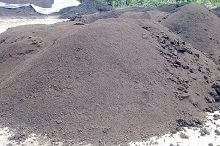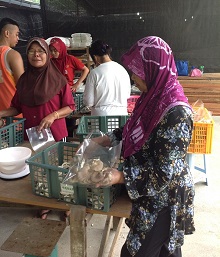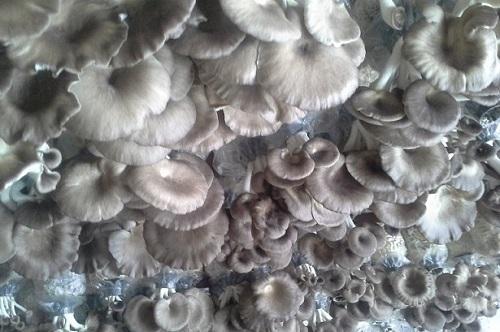Blue Impact Capital, Saving Malaysia´s Forests
The traditional method of growing mushrooms uses a large amount of sawdust, which causes deforestation. Blue Impact Capital has found a way of growing mushrooms of high quality and standards using used coffee grounds in Malaysia. This reduces agricultural waste and the need for logs to cultivate mushrooms. It’s been tough going for founder Terence Chia but he knows that the more mushrooms he grows, the more trees he can save.
What is the core value proposition of your business?
Our ultimate aim is to eventually end the massive deforestation caused by the current unsustainable and harmful practices of the mushroom cultivation industry in South East Asia. The prevailing system of cultivation involves the use of sawdust or woodchips to grow mushrooms which is causing major deforestation. It takes four tons of wood on average to produce just one ton of mushrooms. Imagine how many acres of forest are disappearing every year to support an industry that produces ten million tons of mushrooms every year! Particularly in Asia, where more than 60% of production takes place.
At Blue Impact, we are in the process of developing an alternative, sustainable technique to cultivate mushrooms that doesn’t use sawdust or wood at all. Instead, our technique uses agricultural waste and used coffee grounds to cultivate mushrooms.
We started four years ago and hoped that we could just invest in R&D to prove to others in the industry that this technique is viable. But we quickly realised that others in the industry were just not interested in listening. So we decided to actually demonstrate that this process would work and produce a sustainable yield.
Our pilot operation currently produces between 50 and 160kg of mushrooms a day. We have 90% market share in our district with stable daily orders of 130-140kg from our clients. The results have been encouraging, but we have encountered a number of challenges along the way. We are now hoping to get investment so that we can put more money into research to enhance the yield and prove that this is sustainable and scalable. The critical factor to prove scalability is the yield rate. We’ve actually had a couple of batches that surpass industry average but we need to find a way to achieve this consistently.

What has been the most challenging aspect of starting and running your inclusive business?
We were very disappointed when other players in the industry just didn’t want to listen initially. They were quite content to continue logging. Because of this, we had to change our plans and it took a lot longer to get things going. The most difficult thing has been that since we are attempting to do something completely new, we have had no reference points. We had an idea and then went in blind and have progressed using trial and error. Everything has been experimental so honestly everything that could have gone wrong has gone wrong.
Despite all these problems in the field, when we’ve doubted ourselves and wanted to pack it in, something has always kept us going. We always eventually find a way to move forward. It’s been a real character building experience. When we started, our fear of failure would affect us every time a challenge came along. We know now that fear won’t get us anywhere, we just have to focus on the ultimate goal.
What is the one factor that has most enabled your inclusive business to progress this far?
The most encouraging part of this whole process is that we’ve never had trouble finding customers. We have been supplying our mushrooms to the local market. And actually one unexpected bonus has been the feedback we have received about the taste of our mushrooms. Both our customers and our employees tell us that our mushrooms taste better than the mushrooms cultivated by the sawdust method.
I’ve also been very fortunate to have friends who believed in me and helped me fund the project which has been a massive boost.
Where do you see your business five years from now?
We just hope we can grow fast enough to stem the huge problem of deforestation. My concern isn’t necessarily about my business but for the future of the planet and saving the forests.
What role can inclusive businesses like yours play in helping the developing world combat climate change?
If you just rely on public policy, things will move very slowly and with the latest IPCC analysis, it is clear that we can’t afford to move slowly. It’s really important for consumers and businesses to work together. Businesses will not be pushed to change current practices until their customers demand that change. That’s why we are hoping that as we expand our customer base and they understand the implications of what we are doing, that this will demonstrate to the wider mushroom industry that they need to change their practices as well.
What is the one piece of advice you would give to entrepreneurs looking to start an inclusive business?
Make things happen. Talk is cheap, action is everything. But the most important thing is that you have to be passionate about the path you are taking. Have confidence to make mistakes along the way and the courage to learn from them. If you can do that, you will prevail.

